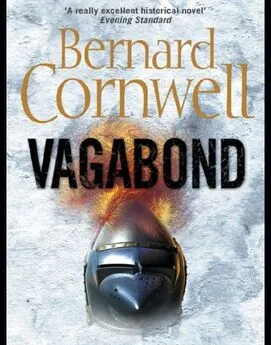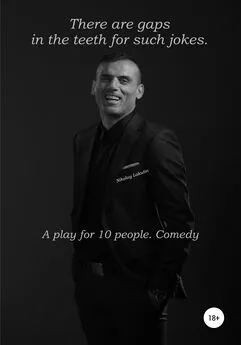Leo Frankowski - CONRADS QUEST FOR RUBBER
- Название:CONRADS QUEST FOR RUBBER
- Автор:
- Жанр:
- Издательство:неизвестно
- Год:неизвестен
- ISBN:нет данных
- Рейтинг:
- Избранное:Добавить в избранное
-
Отзывы:
-
Ваша оценка:
Leo Frankowski - CONRADS QUEST FOR RUBBER краткое содержание
CONRADS QUEST FOR RUBBER - читать онлайн бесплатно полную версию (весь текст целиком)
Интервал:
Закладка:
The company kept records on those of us who belongedto it, but there were no central records for the entire army. There was no one who could tell me where in this huge city— the largest in Christendom, they told us — my father and brother were.
They had tried to keep such records once, but as the army grew, the task became impossible. Sir Odon said that maybe after we won the war, we would have time for such things. I did not find this to be comforting.
I often wrote to my mother, and I was sure she was writing to me, but the mails were all fouled up. Delivering them was one of the things the army did in times of peace, and I could understand we had other priorities now. In four months I got only two letters from her, and neither of them seemed to contain any answers to my questions, like "What is my father's address?"
The fact that she had my address meant she must have gotten at least one letter from me, and surely my father must have written to her as well! All I could think was that perhaps my questions had all been answered in some earlier, undelivered letter.
Yet all things fade, including the loneliness in my heart and the fog that surrounded my head. Slowly, I began to take notice of the other men in my lance, in my platoon, in my company. I began to realize I had new friends now, and in some ways they were better than those I had left behind.
At least they were more interesting, none of them being bakers.
The fellow in the bunk above me, Zbigniew, had worked on Lord Conrad's ranch, where they had a large herd of slightly domesticated aurochs. He had been one of the Pruthenian children Lord Conrad had rescued from the Crossmen.
The guy in the bunk below, Lezek, came from the neighboring ranch where all of Anna's children were raised until they reached their fourth year.
At that age, they somehow "remembered" everything that their mother had known up to the time they were conceived, even though there wasn't a stallion involved in their procreation.
Unlike people and just about everything else in the world, Anna and her children had offspring whenever they wanted and did it without the help of the opposite sex. In fact, the opposite sex didn't exist for their species, a thing that made most of the men in my lance claim to feel sorry for them.
You see, sex was a subject that was often discussed among us, though I suspected my lance mates had as little real knowledge of the subject as I did.
In any event, Lezek was impressed with the fact that I had known Anna herself since I was six years old, and he questioned me for days about every incident I knew of concerning her. Even though his father had worked with the Big People for years, no one he knew had actually talked for any length with Anna herself.
While there were only twenty-nine adult Big People at that point, there were three hundred sixty-four young ones at the ranch, managed by a young woman named Kotcha, whom I vaguely remembered. Once, she had lived a few doors down from my family's house.
Lezek said that in ten years there would be twenty-four thousand adult Big People, and ten years after that everybody would have one. I'm not sure if anyone believed him, but that's what he said.
The other three men in our lance were less talkative, since none of them spoke much Polish. Fritz was a German who came from a farm not far from Worms. He could read and write our language well, since he had been reading Lord Conrad's magazine every month for five years, but his pronunciation still left much to be desired. He had come to join our army, he said, because the chances of rising in the world were better here than anyplace else, and that being a farmer was mostly a matter of walking behind a plow and staring at the ass end of a pair of oxen for most of your life. And anyway, he had more brothers than his father had farmland for them to inherit.
Kiejstut was a Lithuanian who had come because he heard that the army would arm, armor, and train him to fight Mongols. A year earlier, Mongol raiders had killed his father and one of his brothers, kidnapped his youngest sister, and burned down his entire village. He wanted vengeance, even though he was by nature a rather quiet, reserved, even shy person, one who was always careful not to give offense.
The sixth member of my lance was Taurus, a Ukrainian whose family had once lived north of Kiev. He was the only one of his large family who was still alive. Hatred and bitterness seemed to radiate from him. I never once saw him smile, and I never heard him laugh, not until we saw combat and he started killing Mongols. Sterner and far more exacting than our knight, Sir Odon, he was always quick to chastise the rest of us for any slackness during our training, and even for any levity.
Our training went on for four months, and at the time it seemed forever. Sir Odon said that we were getting only a special short course, and if we wanted to stay in the army, we would have to come back here sometime and take another eight months of this.
We all groaned at the thought of an additional eight months in Hell. Almost as an article of faith, we soldiers complained about everything we did or had done to us. This was even true of those grunts (for that was indeed what they called us) who did not come from Lord Conrad's lands, about three-quarters of those in my company.
I had noticed these generally older men when we were first joined together to form our company. Mostly, they were less healthy than the rest of us, thinner, and poorly fed. Also, it seemed to me that some of them were mentally duller than the people I had grown up with. Now they were wearing the first pairs of leather boots that some of them had ever owned, and almost all of them had put on healthy weight, but they still felt obligated to complain, so they did so.
Privately, I think they were impressed by the wealth of the army, and that most of them had resolved to stay in, if they could possibly manage it.
At the end of February, when final preparations were being made, when weapons, ammunition, preserved food, and everything else we would need for the months ahead was being issued, one of the warehouse workers handed me a white leather kit with a red cross on it.
I asked what it was.
"It's a medical kit," he said. "We usually hand them out only to people who have completed the surgeon's course, but someone had too many of these kits made up. The captain said to hand them out to one man from each company, just in case you need it."
I said that I was in the fifth lance, so I'd had the first-aid course, but that was just to help the wounded until somebody got there who knew what he was doing. I didn't know anything about really fixing people!
"Everybody who does already has a kit. Keep it. Clip it on your belt, just in case."
I did as I was ordered, and I quit wearing my smaller first-aid pack since everything in it was also in the big medical kit.
I soon discovered there were advantages to wearing the kit, since real medics were rarely sent out to do the dirtiest jobs, such as cleaning the latrines. Once I had the kit, people assumed I was trained in its use, and thus my life became a bit easier. No one ever asked me if I had taken the proper course, so I was never even tempted to lie about it;
Our company was part of the River Battalion, the men who would be manning the riverboats on the Vistula. This intrigued me, since I had often heard of boats, but had never seen one. In truth, I had never even seen a river.
We wouldn't be actually operating the boats, of course; that was the job of another group entirely. We had only to ride along, we were told, and to obey the orders of our knights and captains, who had vast experience on the dozens of steam-powered boats the army had.
Well, my knight, Sir Odon, was the same age I was, but had joined the army a year earlier, and I don't think he had vast experience in anything. My captain, Sir Stashu, looked to be perhaps eighteen and was no gray-bearded repository of wisdom, either, but I kept my mouth shut, as my father, a wise man, had taught me.
Grunts bitched about everything, but we learned that there were a few topics of conversation that could get you chosen to shovel out the garbage, or to wash a few thousand dishes, and that among these was the inexperience of our leaders. They knew it themselves, and preferred not to think about it.
Chapter Three
From the Journal of Josip Sobieski
WRITTEN JANUARY 19, 1249, CONCERNING FEBRUARY 15, 1241
AT LAST, we said our final Sunrise Service in Hell, and we marched out to war.
Well, we had to pull our war carts behind us, there were only two railroad tracks to pull them on, and there were a sixth of a million of us troops to move out. An hour went by before we finally left Hell, and we were near the front of the line. Our doubled column was over sixteen miles long! Even at a brisk walk, it took almost six hours for us to march by!
Once we finally got on the tracks, it wasn't all that hard to pull the big cart, even loaded as it was with the tons of guns, pikes, and all the other material we needed to fight with. Counting our six knights and the knight-banner who led us, there were forty-three men in our platoon.
Our cart could be pulled by eighteen of them, with the rest of us riding aboard, resting, eating, or even sleeping. This let us continue onward right around the clock, doing over six dozen miles a day without ever once breaking into a run.
The six carts of my company pulled off the main road when we got to East Gate and left the main body of the army to go on without us.
A great crowd of civilians was leaving the dock area. There must have been thousands of them, mostly peasants, but with a scattering of well-dressed people as well. They were all walking back the way we had come; refugees who would shelter at the Warrior's School, we presumed.
I had heard much about the castle that had been built at East Gate, how it was made entirely of reinforced concrete, and I was eager to examine it closely.
I never got the chance for we were marched straight onto our boat, the RB1 Muddling Through. The tracks went right up to and over the big drawbridge at the front of the boat and right into the cavern of a hold that made up most of the lower deck. We could hardly see the huge boat as we went aboard it.
The drawbridge door was closed behind us, leaving us in the dark, and our riverboat pulled out immediately to let the next one up to the dock to be loaded. It was like being locked up in an oversized barn, filled with six war carts and the almost two gross of men of my company.
We soon found out that we were riding in no ordinary steamboat, but in the craft that held the commanders of the entire river flotilla, all three dozen boats. We had two army barons aboard, as well as Sir Conrad, now Count Conrad, himself.
Captain Targ didn't want his troops getting in the way of all these high personages, so he had us stay down below on the cargo deck, just in front of the engines. The second deck had the radios and the war room, called Tartar Control, as well as the kitchen and the sleeping rooms for the officers.
There was a fighting top above that, and a few hours after we were aboard, the sixth lance of each platoon was sent up there with their guns. So were the fourth lances, who acted as loaders for the swivel guns, and the third, who acted as spotters.
My own fifth lance acted as corpsmen, assistants for the surgeons, and we wouldn't be needed until somebody got shot. This meant we had to stay inside, cooped up without even a window, until somebody had the courtesy to get decently wounded so we could go outside and do something.
Читать дальшеИнтервал:
Закладка:


![Робин Хобб - Странствия Шута [Fool’s Quest]](/books/1086209/robin-hobb-stranstviya-shuta-fool-s-quest.webp)




